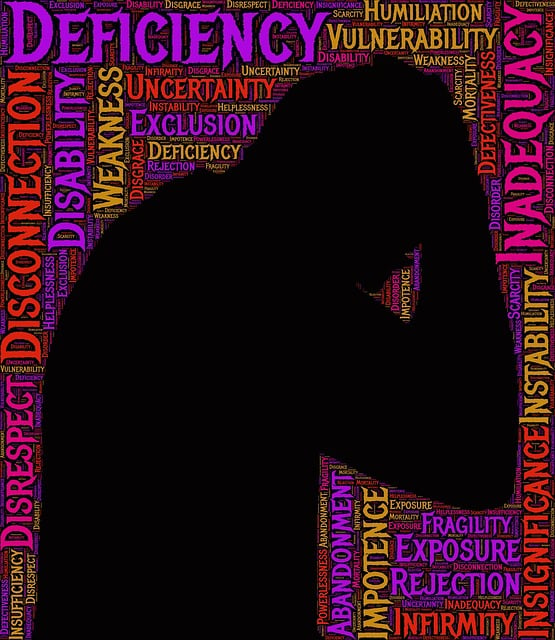Lafayette Children's Therapy prioritizes safety and comprehensive mental wellness care through meticulous risk assessment and harm minimization strategies. Therapists evaluate individual needs, considering past trauma, current coping mechanisms, and environmental risks, to create tailored plans that empower children and families with emotional management tools. By leveraging evidence-based practices, innovative resources like the Mental Wellness Podcast Series, and personalized interventions, Lafayette Children's Therapy fosters resilience, self-esteem, emotional regulation, and stress management in a secure environment.
Risk assessment and harm minimization planning are critical components of ensuring safe and effective therapy sessions, especially at institutions like Lafayette Children’s Therapy. This article explores a structured approach to these processes, beginning with understanding risk assessment as a foundational element for patient safety. We delve into identifying potential harms, developing tailored minimization plans, and implementing strategies that cater to each client’s unique needs, ultimately enhancing the overall therapeutic experience at Lafayette Children’s Therapy.
- Understanding Risk Assessment: A Foundation for Safety in Therapy
- Identifying Potential Harms: A Comprehensive Approach at Lafayette Children's Therapy
- Developing a Customized Minimization Plan: Strategies for Every Client
- Implementation and Monitoring: Ensuring Continuous Safety in Therapy Sessions
Understanding Risk Assessment: A Foundation for Safety in Therapy

Risk assessment is a cornerstone in ensuring safety within therapy practices, especially at Lafayette Children’s Therapy. It involves meticulously evaluating potential hazards and their likelihood to cause harm, allowing therapists to implement targeted strategies for prevention and mitigation. This process requires a comprehensive understanding of various factors, including past trauma, current coping mechanisms, and environmental risks, all of which can influence a client’s well-being.
By conducting thorough risk assessments, Lafayette Children’s Therapy can foster an environment that promotes positive thinking and self-care practices while minimizing potential dangers. It empowers therapists to educate clients about mental health awareness, empowering them with the knowledge to recognize and manage their emotional states effectively. This proactive approach is pivotal in creating a secure space where individuals can heal, grow, and thrive.
Identifying Potential Harms: A Comprehensive Approach at Lafayette Children's Therapy

At Lafayette Children’s Therapy, identifying potential harms is a meticulous and comprehensive process designed to ensure optimal care for young minds. Therapists employ an all-encompassing approach, meticulously examining various factors that may negatively impact a child’s mental wellness. This involves delving into their personal histories, family dynamics, and social environments to unearth hidden risks. By navigating this intricate landscape, therapists gain valuable insights, enabling them to proactively develop strategies for harm minimization.
The team at Lafayette Children’s Therapy goes beyond surface-level issues, recognizing that emotional healing processes are deeply connected to a child’s overall mental wellness. They utilize innovative tools such as the Mental Wellness Podcast Series Production and Emotional Healing Processes to educate both children and their families about managing risks. Additionally, they offer practical guidance through Mental Wellness Journaling Exercise, empowering young individuals to take an active role in their emotional well-being.
Developing a Customized Minimization Plan: Strategies for Every Client

When developing a harm minimization plan for clients at Lafayette Children’s Therapy, it’s crucial to tailor strategies to meet individual needs. Every child and family dynamic is unique, necessitating customized approaches that address specific challenges and goals. This personalized planning involves assessing risk factors and leveraging evidence-based practices to foster resilience and well-being.
Effective minimization plans incorporate a multi-faceted approach, encompassing therapeutic interventions, support systems, and coping mechanisms. For instance, for clients grappling with trauma, Trauma Support Services may include specialized therapy sessions, mindfulness techniques promoting positive thinking, and safe spaces for emotional healing processes. By integrating these tailored strategies, Lafayette Children’s Therapy ensures comprehensive care that empowers clients to navigate risks and thrive.
Implementation and Monitoring: Ensuring Continuous Safety in Therapy Sessions

Implementing a robust risk assessment and harm minimization plan is integral to ensuring safe and effective therapy sessions at Lafayette Children’s Therapy. This involves meticulously identifying potential risks and hazards specific to each client, their age, and therapeutic goals. Once identified, strategies are put in place to mitigate these risks, focusing on proactive measures to prevent harm.
Regular monitoring and evaluation are key to maintaining this safety net. Therapists at Lafayette Children’s Therapy are trained to continually assess the progress and well-being of clients, adjusting the plan as needed. By fostering open communication with parents or guardians, therapists can gain valuable insights into any emerging issues or challenges, enabling prompt intervention. This dynamic approach ensures that therapy remains tailored to the evolving needs of each child, promoting not only Self-Esteem Improvement and Emotional Regulation but also effective Stress Management.
Risk assessment and harm minimization planning are essential components of ensuring safety within therapy sessions at Lafayette Children’s Therapy. By understanding risk assessment, identifying potential harms, developing customized minimization plans, and continuously monitoring implementation, therapists can create a secure environment for every client. This comprehensive approach not only protects young clients but also fosters trust and enhances the therapeutic experience at Lafayette Children’s Therapy.











